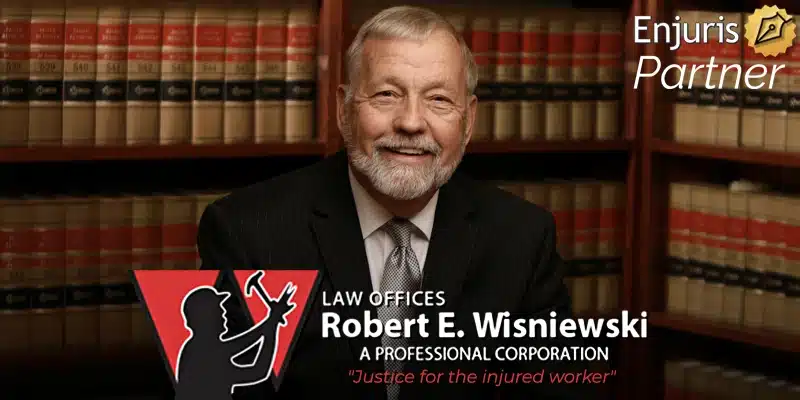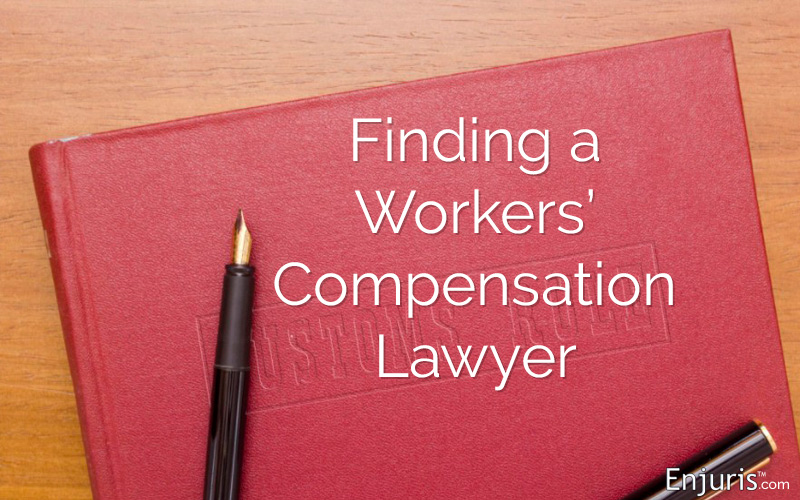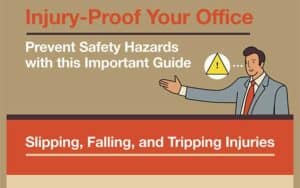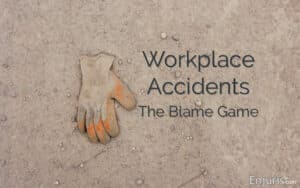Help! I Was Injured At Work
When someone is seriously injured at work or becomes ill because of their job, they should be able to turn to the workers' compensation system to get the financial help they need to help pay for medical bills and lost wages.
Workers' compensation is a vital safety net for millions of Americans — from laborers, clerks, and construction crew to office workers, drivers and countless other jobs. Many of these occupations carry inherent risk to life and limb. And despite the best efforts of employers, workers, insurance companies and regulators, accidents and injuries still happen on the job.
Before the creation of a dedicated system nearly a century ago, injured workers would often find it difficult to obtain treatment for their injuries and compensation for lost wages. Today, insurance that covers most work-related injuries and illnesses is a requirement for most employers.
This system essentially means the employer accepts financial liability for any on-the-job injuries and occupational illnesses – from a car accident to slip and fall to carpal tunnel syndrome – even if it was the incident was the worker's fault. In exchange for this coverage, workers cannot hold the employer liable for pain and suffering (except in the most severe cases).
When to hire a workers' compensation lawyer
Now that you have a basic understanding of workers' compensation, you may be wondering:
Should I hire a workers' comp lawyer, or can I handle the claim on my own?
Although the workers' comp system functions pretty well for the most part, it can still be complicated. For starters, laws vary from state-to-state, and some employers and insurance companies regretfully attempt to use obscure rules to unjustly reduce employee compensation. Hiring an experienced workers' compensation attorney in your state ensures you receive proper treatment for your injuries and full compensation for lost wages.
Here's a list of the most common examples of work injury claim disputes that an attorney can help resolve:
- When the insurer or employer denies or rejects your claim
- When the insurer doesn't pay benefits promptly
- When the insurer or employer attempts to stop or adjust your workers' comp benefits
- When the settlement offered by the insurer doesn't cover all of your medical expenses and lost wages
- When you have a pre-existing condition
- When you miss several days of work because of your injury or illness
- When your employer fails to report the workplace injury to the insurer, or when your employer doesn't have insurance at all
- When your employer fires you or retaliates against you for filing a workers' comp claim
- When your employer requests a medical examination from a specific doctor
- When there's a third-party involved in the work-related accident
- When you collect additional benefits such as Social Security disability
Make no mistake that the insurance companies and your employer have highly trained lawyers on their side. For this reason, it's important to hire an experienced workers' compensation attorney to tilt the scales in your favor.
When you do NOT need a workers' comp lawyer
Of course, not every situation requires you to lawyer up. You may not need to hire a workers' compensation attorney if ALL of the following states are true:
- You only suffered a minor injury that heals quickly and fully with treatment
- You missed little or no work because of the injury
- Your employer agrees that the injury or illness was work-related
- The insurance company accepts your claim and pays out a fair amount
That said, we always recommend consulting with a workers' compensation attorney to ensure that the settlement you're being offered is fair and just. Insurers often try to lowball injured workers and pressure them into accepting an unfair and insufficient settlement offer. It never hurts to have a professional review your claim. Most attorneys offer free initial consultations, so there's no cost to you.
Finding the best workers' compensation attorney near you
The underhanded and dirty tactics insurers frequently employ are exactly why hiring a workers' compensation lawyer is so vital – they're able to interpret the laws in your state, and hold the insurer or employer accountable to their obligations.
Don't delay one minute in finding an attorney to represent your interests in a work injury case. You may think your case is straightforward and you don't need an attorney, but this could be a costly mistake. Injured workers with no representation often receive significantly less than what workers' comp laws require.
Finding an attorney who is skilled, knowledgeable, and who understands the complexities of workers' comp litigation in your state isn't easy. That's where Enjuris can help!
Questions to ask a workers' compensation lawyer
How do you know when you've found the best attorney to take on your workers' compensation case?
By asking the right questions.
Review the following list of questions when preparing to meet with a workers' comp lawyer:
- Is your practice exclusively devoted to workers' compensation, or do you specialize in other areas as well?
- Who will be handling the majority of my case? An attorney or legal aid?
- Do you have certifications and qualifications? How long have you been practicing workers' comp law?
- How much do you charge? Do you work on a contingency fee basis?
- What are the strengths and weaknesses of my claim?
- Do your cases often settle or go to trial?

A worksheet to prepare for your first meeting with a personal injury attorney – what to bring, what they'll ask
Download in PDF format

Worksheet with questions to ask a personal injury attorney to help determine if he or she will be a good fit for your case
Download in PDF format

Damages worksheet to track expenses for your injury claim (medical treatment, property damage, lost wages, prescriptions)
Download in PDF format
Tips for finding the best workers' compensation lawyer
What is the best way to hire a workers' compensation attorney? Is it different from hiring a lawyer who specializes in other areas? Read on to find out and learn some helpful tips for your own search.
























